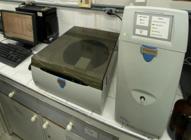Abstract
Alkali-activated concretes (AAC) offer an alternative to Portland cement concretes, with high strength and low CO2 emissions. However, common durability testing for conventional concrete may not suit AAC. This study aimed to verify the suitability as durability characterization tests for chloride migration, electrical resistivity, and water penetration under pressure, commonly applied to conventional concretes, in AAC based on fly ash and BOF steel slag. A comparison with a Portland cement-based concrete was also done. Tests of penetration of water under pressure; electrical resistivity; chlorides migration; and ion chromatography in the solutions before and after chlorides migration were performed. The findings revealed that while AAC exhibits low permeability, its high conductivity results in elevated electrical currents during chloride migration tests, potentially overestimating chloride migration. Ion chromatography indicated lower actual chloride migration, suggesting that electrical current is not only linked to chloride migration.
Keywords
Alkali-activated binders; Alkali-activated concrete; Chloride migration

 Chloride migration, electrical resistivity and water penetration tests analysis for alkali-activated concrete based on fly ash and steel slag
Chloride migration, electrical resistivity and water penetration tests analysis for alkali-activated concrete based on fly ash and steel slag Thumbnail
Thumbnail
 Thumbnail
Thumbnail
 Thumbnail
Thumbnail
 Thumbnail
Thumbnail
 Thumbnail
Thumbnail
 Thumbnail
Thumbnail
 Thumbnail
Thumbnail
 Thumbnail
Thumbnail
 Thumbnail
Thumbnail








